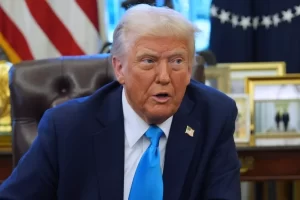It’s not looking good. Reports of corruption and widespread harassment at the European Parliament are bad for the assembly’s reputation and the EU’s global standing.
The allegations also risk endangering public support for Europe’s ‘largest democratic exercise’ set for 6-9 June next year.
The need for quick corrective action is obvious. Instead, at least so far, it seems pretty much like business as usual.
Roberta Metsola, the European Parliament’s president, is urging voters to show up next year with a « sense of hope and possibility ».
In fact, the EU, European parliamentarians and European voters must do much more than hope.
EU leaders must take a more active interest in the reputational damage being wreaked on their co-legislators.
Instead of deflecting blame on « foreigners » and their agents for the current mess, the assembly’s big bosses have to act quickly to put their house in order and look after all their employees, not just the big and powerful.
And while keeping up pressure for change, European voters must make sure that next time around they pick a better crop of MEPs and vote with discernment and intention.
EU politics can be repetitive and a bit rinse and repeat.
It may seem just yesterday that we voted for new MEPs, European Commission president Ursula von der Leyen moved both her desk and her bed into the Berlaymont and, across the street, Charles Michel started chairing EU summits.
We also know that after next year’s vote, it will be all about manifesting a heroic Spitzenkandidaten — who may then be jettisoned, amid endless squabbles and unseemly horse-trading.
Yes, democracy is both tedious and exciting and a bit like déjà vu all over again. Yet next year, the stakes for Europe will be very high.
A lot has happened in the last four years.
The last time we voted for the European Parliament, life was simpler. There was no pandemic, no war in Europe and no johnny-come-lately countries demanding a seat at the table.
But then came an endless succession of challenges.
We were bruised and battered but survived Covid-19. Brexit meant Brexit, even as British prime ministers came and went.
The far-right flourished, but there were also Black Lives Matter protests. Climate change activists pressed harder for their demands while refugee pushbacks and detentions made Fortress Europe an even grimmer blight on the EU’s global reputation.
Our societies aged even as we sought to adapt to a global technological revolution.
Fast forward to 2022 and 2023 and we are still in the midst of Russia’s ongoing war in Ukraine — and still struggling to understand the multiple ways in which the conflict is changing Europe and impacting on other parts of the world.
Spoiler alert
Those changes are irrevocable, and it is going to get tougher not least because of geopolitical uncertainty caused by volatile US-China relations.
All this makes it even more imperative that the EU functions in full gear, with the best people in charge.
The good news is that according opinion polls, an impressive 47 percent of Europeans trust the EU, 45 percent have a « positive image » of the bloc and 62 percent are optimistic about the EU’s future.
Also, with the voting age now lowered to 16 years in Austria, Belgium, Greece and Malta, an estimated 270,000 teenagers will be allowed to cast their ballots in 2024, hopefully making the entire exercise a tad more exciting.
Source: EU Observer































